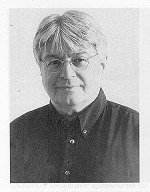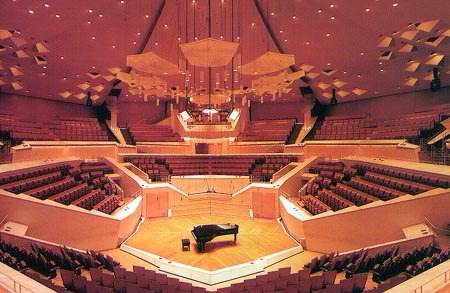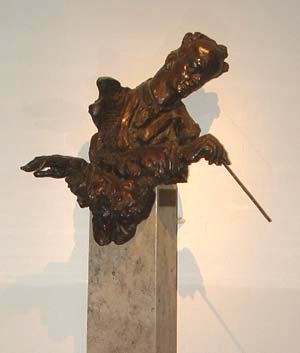S&H Concert reviews
CONCERTS at the BERLIN PHILHARMONIE (PGW)
Haydn The Seasons Philharmonic Choir of Berlin with the Carl Philipp Emanuel Bach Chamber Orchestra conducted by Uwe Gronostay Berlin Philharmonie, 30 May 2002
Dvorak String Quartet Op. 96; Bartok Sonata for two Pianos & Percussion; Schubert Octet D 803 Stipendiaten des Orchester-Academie der Berliner Philharmoniker Kammermusiksaal of the Philharmonie Berlin, 5 June 2002 (PGW)
Arriving in Berlin with a full schedule, centred on performances in the great City's three opera houses, we succeeded in buying tickets the same evening for a concert in the Grosser Saal of the Philharmonie (concerts there are usually sold out) for what proved to be an auspicious occasion, and timely so soon after covering choral festivals in Cork and Rhodes.
This was the farewell concert of the retiring director of the Philharmonischer Chor Berlin, the City's most prestigious large choir. Famous internationally as a choral director, and successor of Helmut Rilling as Professor of Choral Singing in Frankfurt, Uwe Gronostay [left] leaves his Berlin choir in excellent health and, because of his work with them, it bids fair to retain financial support at a difficult time, when many musical organisations are threatened with closure.The Philharmonie is a breathtaking building, outside, around the spacious foyers at various levels, and within it boasts as beautiful a contemporary auditorium as you will find anywhere. There are exhibitions of sculpture, celebrating famous conductors of the past, and a retrospective tribute to Claudio Abbado, who is to be succeeded by Sir Simon Rattle - the 2002/2003 season will feature a good selection of challenging contemporary music.
Die Jahreszeiten was given an affectionate 'gemütlich' interpretation of the ageing Haydn's celebration of the pastoral idyll. The orchestra, belying its name, is a modern instrument group, as are those of Helmut Rilling still used in his Stuttgart Bachakademie performances. From our seats high up, level with the back of the platform, the sound was comfortably warm, as if luxuriously uphosltered, almost too much so, with never a trace of the asperity which is usual in period instrument performances of Haydn. The soloists Barbara Locher, Werner Güra and Klaus Mertens made an ideal trio and the whole thing went as smoothly as well-oiled clockwork. Although the Philharmonie's acoustics are reputed to be excellent anywhere in the auditorium, it is noteworthy that moving along our row just a couple of seats - to where there was a wall behind us, instead of a void into the highest reaches below the roof - sharpened the tone qualities of voices and instruments markedly and really changed our feeling about the interpretation. In almost every concert venue, including state-of-the-art halls like those at Berlin and Lucerne, location of seat is an under-appreciated variable in sometimes too dogmatic critical writing about orchestral sound.
Having been privileged to be present at farewells to Harry Kupfer and Uwe Gronostay, two people important in Berlin's music during the period of regeneration, it was fitting that for our last evening we looked towards the future. The Berlin Phil gives special tuition and wide performing experience to a rigorously selected group of high-flying young professionals, grooming these Stipendiaten des Orchester-Academie der Berliner Philharmoniker towards joining that orchestra, or other leading international orchestras, and deliberately inculcating the BPO's particular tone and 'style'. For this full programme (2 hours) three ensembles had been coached each by a different member of the orchestra, which gave us an excellent opportunity to savour the remarkable ambience of the Kammermusiksaal, a smaller companion to the Philharmonie, built alongside it a few years later, its gold cladding shining
still more brightly than that of the older sibling.The in-the-round interior has a delightful intimacy and its acoustics are truly perfect, based on a silent ambience in which you could hear a pin drop. The Schubert Octet would have benefited from more direct guidance (indeed an independent conductor to shape and balance it) but Dvorak's American Quartet was given to high professional standard and the Bartok was seen and heard to greatest advantage there, every nuance heard to perfection.Peter Grahame Woolf
Foyer sculpture of Furtwangler



 Return to:
Return to: